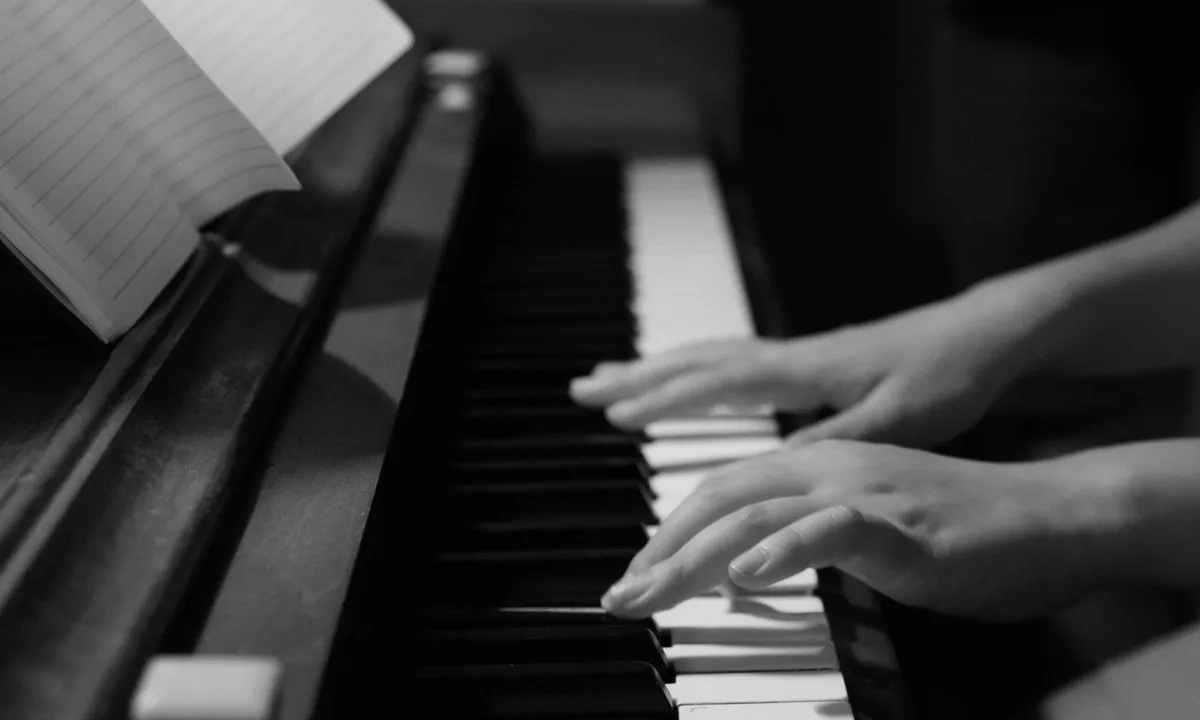
Musicianship: Chord Charts Diatonic Chords and Minor Keys 
Berklee College of Music professor George W. Russell, Jr. guides learners through the next level of harmony and ear training in the Developing Your Musicianship II course. This course is the second in the series, and covers topics such as chord charts, diatonic chords, and minor keys. Learners with a basic knowledge of music theory or who have completed Developing Your Musicianship I will benefit from the four lessons included. ▼
ADVERTISEMENT
Course Feature
![]() Cost:
Cost:
Free
![]() Provider:
Provider:
Coursera
![]() Certificate:
Certificate:
Paid Certification
![]() Language:
Language:
English
![]() Start Date:
Start Date:
17th Jul, 2023
Course Overview
❗The content presented here is sourced directly from Coursera platform. For comprehensive course details, including enrollment information, simply click on the 'Go to class' link on our website.
Updated in [March 06th, 2023]
This course, Musicianship: Chord Charts Diatonic Chords and Minor Keys, is the second course in the Developing Your Musicianship specialization offered by Berklee Online. It is taught by Berklee College of Music professor George W. Russell, Jr. and is designed to help learners with a basic knowledge of music theory to understand key musical concepts and create and perform contemporary music.
The course consists of four lessons that cover topics such as new key signatures, minor tonalities, minor intervals, 7th chords, chord progressions, and the major pentatonic scale. Learners will be able to train their ear to hear minor intervals and 7th chords, build 7th chords, and construct melodies using the major pentatonic scale.
The course culminates with an assignment that requires learners to compose and perform an 8-measure composition using popular chord progressions and the Major pentatonic scale. The course is designed to impart the joy of creating music and sharing it with others.
[Applications]
Upon completion of this course, learners can apply their newfound knowledge of chord charts, diatonic chords, and minor keys to create and perform contemporary music. Learners can use the major pentatonic scale to construct melodies and the 7th chords to build common chord progressions. Additionally, learners can use the assignment to compose and perform an 8-measure composition using popular chord progressions and the Major pentatonic scale.
[Career Paths]
1. Music Producer: Music producers are responsible for overseeing the production of music recordings. They work with artists, songwriters, and engineers to create the best possible recordings. They are also responsible for selecting the right instruments and sounds for a particular project. As technology advances, music producers are increasingly using digital tools to create and mix music.
2. Music Composer: Music composers create original music for a variety of media, including film, television, video games, and live performances. They are responsible for writing and arranging music, as well as collaborating with other musicians and producers. As technology advances, music composers are increasingly using digital tools to create and mix music.
3. Music Educator: Music educators are responsible for teaching music theory, composition, and performance to students of all ages. They are also responsible for creating lesson plans and providing guidance to students. As technology advances, music educators are increasingly using digital tools to teach music theory and composition.
4. Music Therapist: Music therapists use music to help people with physical, emotional, and mental health issues. They are responsible for creating individualized treatment plans and providing guidance to patients. As technology advances, music therapists are increasingly using digital tools to create and mix music.
[Education Paths]
Recommended Degree Paths:
1. Bachelor of Music: This degree program provides students with a comprehensive education in music theory, composition, performance, and music technology. Students will learn the fundamentals of music theory, including chord progressions, minor tonalities, and 7th chords. They will also learn how to compose and perform music using popular chord progressions and the Major pentatonic scale. Additionally, students will gain an understanding of music technology and how to use it to create and record music.
2. Master of Music: This degree program is designed for students who want to further their knowledge of music theory, composition, performance, and music technology. Students will learn advanced concepts in music theory, including chord progressions, minor tonalities, and 7th chords. They will also learn how to compose and perform music using popular chord progressions and the Major pentatonic scale. Additionally, students will gain an understanding of music technology and how to use it to create and record music.
3. Music Production and Engineering: This degree program is designed for students who want to pursue a career in music production and engineering. Students will learn the fundamentals of music production and engineering, including recording techniques, mixing, mastering, and sound design. They will also learn how to use music technology to create and record music. Additionally, students will gain an understanding of music theory, including chord progressions, minor tonalities, and 7th chords.
4. Music Business: This degree program is designed for students who want to pursue a career in the music industry. Students will learn the fundamentals of the music business, including music marketing, promotion, and copyright law. They will also learn how to use music technology to create and record music. Additionally, students will gain an understanding of music theory, including chord progressions, minor tonalities, and 7th chords.
Developing Trends:
1. Music Technology: With the rise of digital music production and streaming services, music technology is becoming increasingly important in the music industry. Music technology is used to create and record music, and it is also used to promote and distribute music. As a result, music technology is becoming an essential part of the music industry.
2. Music Business: With the rise of digital music production and streaming services, the music business is becoming increasingly complex. Music business professionals must understand the fundamentals of the music business, including music marketing, promotion, and copyright law. Additionally, they must understand how to use music technology to create and record music.
3. Music Theory: With the rise of digital music production and streaming services, music theory is becoming increasingly important in the music industry. Music theory is used to create and record music, and it is also used to promote and distribute music. As a result, music theory is becoming an essential part of the music industry.
Pros & Cons

Clear and easy to follow.

Excellent instructor and assignments.

Great for newcomers and experienced musicians.

False and deceptive advertising.

Takes far more experience and time than advertised.

Minor mistakes in some videos.
Course Provider

Provider Coursera's Stats at AZClass
Discussion and Reviews
0.0 (Based on 0 reviews)
Explore Similar Online Courses

Asynchronous Programming with Javascript

The Complete 2022 Flutter Development Bootcamp with Dart

Python for Informatics: Exploring Information

Social Network Analysis

Introduction to Systematic Review and Meta-Analysis

The Analytics Edge

DCO042 - Python For Informatics

Causal Diagrams: Draw Your Assumptions Before Your Conclusions

Whole genome sequencing of bacterial genomes - tools and applications

Orchestral Music Composition & Music Theory for Video Games

Music Theory for Songwriters: From Beginner to Producer

Music Theory Level 1: Part Five
 Related Categories
Related Categories
 Popular Providers
Popular Providers
Quiz
 Submitted Sucessfully
Submitted Sucessfully
1. What type of scale is used in the course?
2. What type of chords are introduced in the course?
3. What is the final assignment of the course?


Start your review of Musicianship: Chord Charts Diatonic Chords and Minor Keys